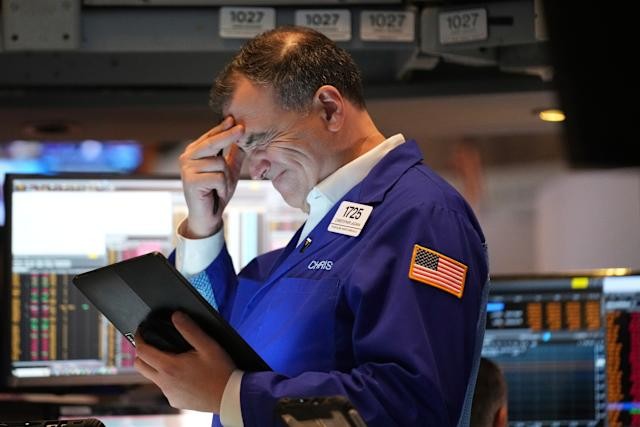
Global stock markets experienced dramatic swings on Monday as investors braced for President Donald Trump's upcoming "Liberation Day," which promises sweeping changes to international trade policies.
The uncertainty surrounding Trump's planned "reciprocal" tariffs, set to begin Wednesday, triggered widespread selling across Asian and European markets. Japan's Nikkei 225 plunged 4%, while South Korea's Kospi dropped 3% and France's CAC 40 fell 1.6%.
U.S. markets showed extreme volatility, with the S&P 500 recovering from an early 1.7% decline to finish up 0.6%. The index recorded its worst quarter in two-and-a-half years, down 4.6%. While the Dow Jones Industrial Average climbed 417 points, tech stocks dragged the Nasdaq slightly lower.
Investors sought refuge in traditional safe havens, pushing gold prices above $3,160 per ounce. Treasury bond yields continued their decline, with the 10-year yield falling to 4.21% from January's 4.80%.
Goldman Sachs economists predict Trump will implement an average 15% reciprocal tariff and have increased their recession probability forecast to 35%, up from 20%. The investment bank cited lower growth expectations and statements from White House officials indicating a willingness to accept economic hardship.
Tech stocks bore the brunt of Monday's selling pressure. Tesla fell 1.7%, extending its year-to-date losses to 35.8%, while Nvidia dropped 1.2%, now down 19.3% for the year.
Market strategists remain divided on the potential impact of Liberation Day. While some see possibility for a relief rally if measures prove less severe than feared, others warn that persistent policy uncertainty could freeze business spending and push the economy toward recession.
Warren Buffett's Berkshire Hathaway, sitting on $334.2 billion in cash, emerged as one of the day's winners, gaining 1.2%. The company's substantial cash position suggests limited attractive investment opportunities in what many consider an expensive market.